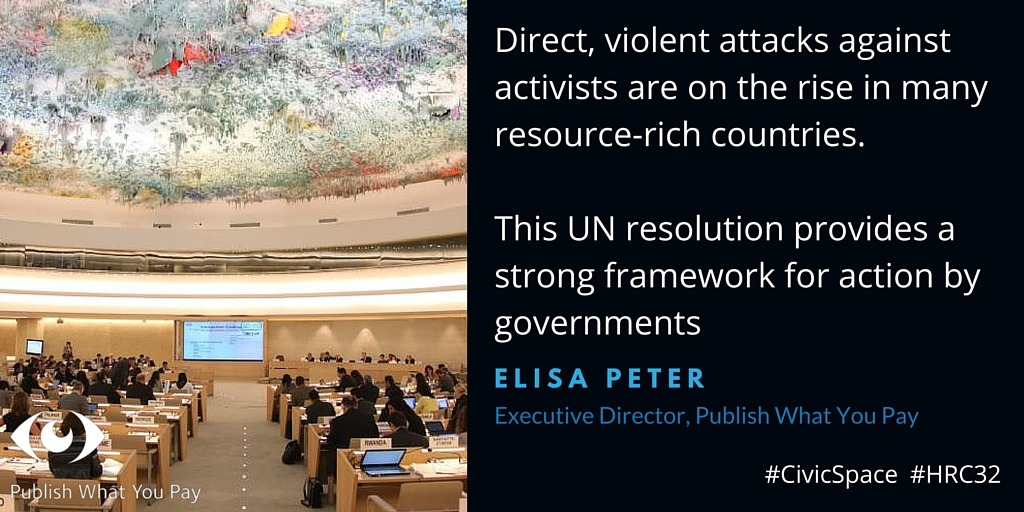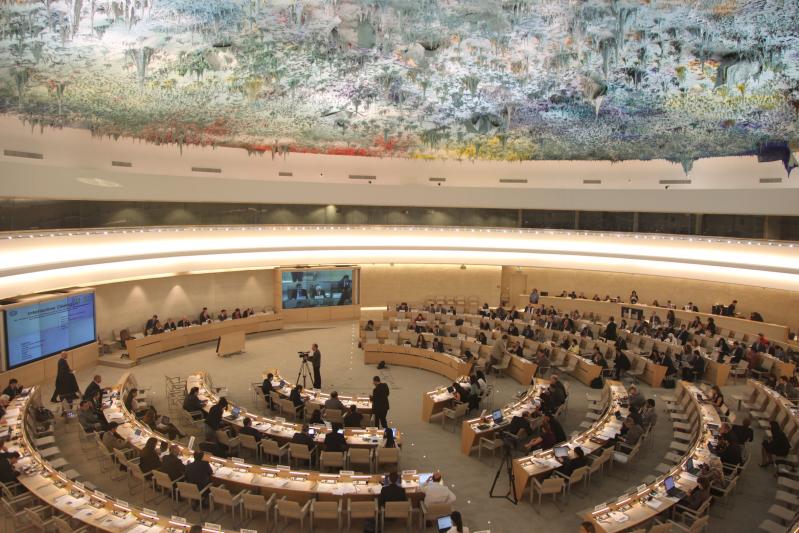
New UN Human Rights Council resolution protecting civil society organisations is a step forward
The United Nations Human Rights Council (OHCHR) has adopted a resolution committing member States to create safe and enabling environments for civil society. The resolution “urges States to ensure access to justice, and accountability, and to end impunity for human rights violations and abuses against civil society actors”.
Publish What You Pay (PWYP) welcomes the adoption of this resolution as human rights abuses, especially repressions against civil society in the oil, gas, and mining sectors, are particularly ruthless. Civil society members’ freedom of expression and their right for peaceful assembly is continually threatened on a daily basis. Those challenging the extractive sector are on the frontline of repression and often face life-threatening situations in a sector with high financial stakes.
“Direct, violent attacks against activists, including those working on increasing transparency in the extractives sector, are on the rise in many resource-rich countries as are legal and judicial restrictions on their activities. PWYP is increasingly concerned about the safety and security of some of our members. Freedom of association and expression are fundamental pillars of open societies and the international community needs to ensure those rights are protected around the world. This UN resolution provides a strong framework for action by governments,” said Elisa Peter, Executive Director of PWYP.
The recent murder of Gloria Capitan, a well-known and active anti-coal leader in a province north of Manila, Philippines, emphasises the importance of civil society protection and the enforcement of human rights. Ate Glo, as she was most commonly known, was gunned down by motorcycle-riding gunmen early last week. She was very active in resisting coal stockpile and coal plants in the province of Bataan.
Political justice and civil society protection is particularly important in countries like the Philippines, which according to Global Witness is the second most dangerous place for environmental activists after Honduras. PWYP member coalitions have been subject to harassment and repression while working in countries where civic space is restricted.
Individual human rights defenders and PWYP member associations around the world have been subject to attacks, travel bans, and risk the suspension of their activities when they speak out against natural resource exploitation. PWYP Uganda for instance reported that they had had their equipment confiscated for nearly two months after trying to screen a documentary on lessons that could be learned from other resource-rich countries.
A significant instance occurred during François Hollande’s visit to Niger in July 2014 when approximately 10 activists, including Ali Idrissa, the national coordinator of the PWYP coalition, were arrested that morning. Equally, peaceful protesting near mines led to violence against protesters and even killings when the Canadian mining company Tahoe Resources’ security personnel opened fire on peaceful protesters in Guatemala in 2013.
The OHCHR resolution was signed by 31 countries, and rejected by seven, namely China, Congo, Cuba, Nigeria, Russian Federation, South Africa, and Venezuela.
To find out more about what can be done to protect activists and civil society, see the PWYP Protection Policy and the EITI Civil Society Protocol.











